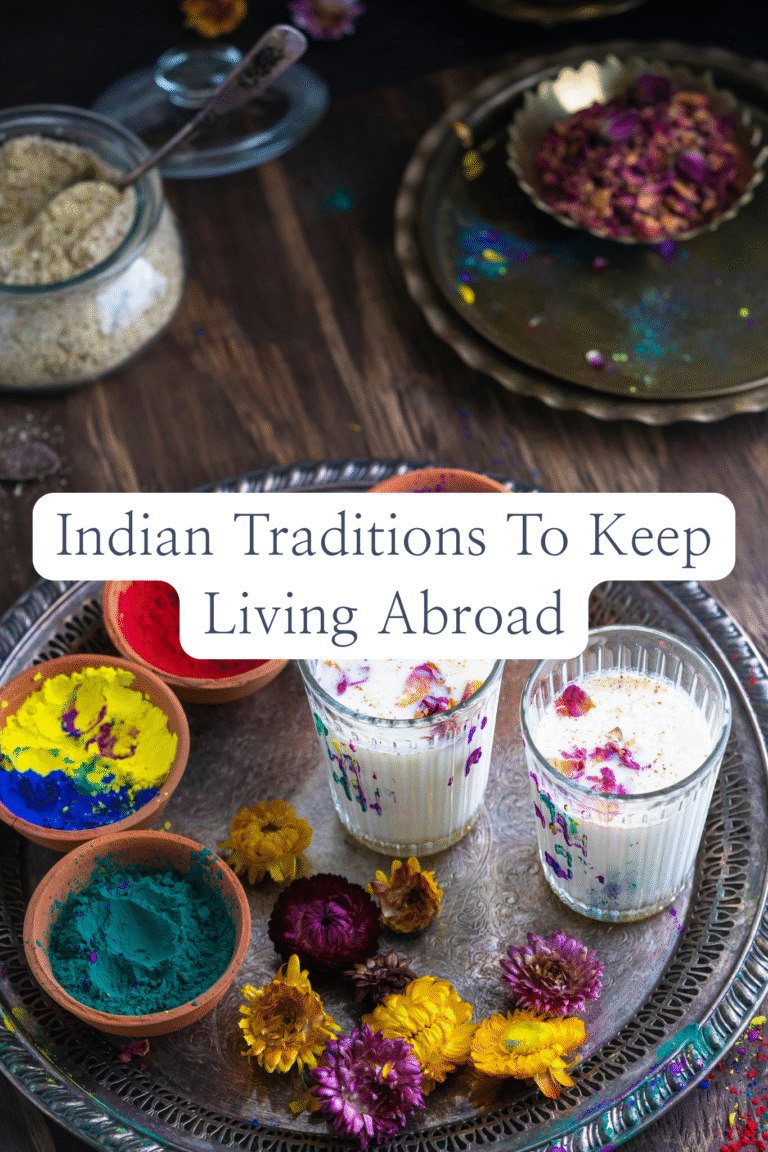Holding On While Letting Go: Keeping Your Culture Alive Abroad
Keeping Culture Alive Abroad — Stay Rooted While You Adapt
Keeping culture alive abroad is possible — even while adapting to a new life. When you move to another country, everything changes — the language, food, routines, even holidays. It can feel like you’re stuck between two worlds: the one you came from and the one you’re now part of. But you don’t have to choose.
This post shares practical ways to stay deeply rooted in your Indian identity while confidently building your new life abroad. If you’ve ever wondered how other Indians are keeping culture alive abroad while starting fresh, this guide will help you do the same.
Keeping Culture Alive Abroad: Practical Ways to Stay Rooted
1. Bring Your Traditions with You
Celebrating Indian festivals like Diwali, Holi, or Navratri doesn’t have to stop just because you live abroad. Even on a smaller scale or within your home, keeping those rituals alive brings comfort and meaning.
Light diyas, decorate your space, wear traditional clothes, and cook festive meals — these acts are reminders of who you are. You can even invite non-Indian friends and neighbors to join in and share your heritage proudly.
Festivals aren’t just events — they are emotional anchors that keep you connected to your roots.
2. Speak Your Language at Home — but Balance It
You might think speaking only English at home will help you or your kids learn faster. And yes, it’s essential for adapting, but don’t let that come at the cost of forgetting your mother tongue.
Languages like Hindi, Tamil, Gujarati, Bengali, or Punjabi carry your memories and connections to family. Try to maintain a balance — use English when needed but keep your native language alive through music, movies, and bedtime stories.
That balance gives you the best of both worlds — practical success and cultural pride.

3. Keep Cooking the Food You Grew Up With
Food is memory. One smell, one bite, and you’re suddenly home again. Cooking dishes you grew up with — dal, rajma, parathas, sambhar, biryani — brings comfort and connection.
You don’t need fancy ingredients; even simple meals passed down from parents or grandparents can help you keep culture alive abroad in everyday life.
And don’t hesitate to blend — make butter-chicken tacos or masala pasta. You’re not watering down your culture; you’re evolving with it.
4. Build a Desi Circle Abroad — and Stay Connected to India
Find people near you who share your Desi background. Most cities have Indian communities, WhatsApp groups, temples, or cultural associations. They offer a comfort zone where you don’t have to explain who Shah Rukh Khan is or why Diwali matters.
Even simple things like sharing chai, cooking together, or watching a cricket match can instantly make you feel at home. Studies show that migrants often experience “cultural bereavement” — a quiet sense of loss that comes from leaving behind familiar traditions and social bonds — as they adapt to new environments (Bhugra & Becker, 2005). Having a Desi circle around you helps ease that feeling and reminds you that you’re not alone in the experience.
At the same time, stay in touch with family back home through video calls and messages. That balance between old connections and new friendships keeps you grounded and whole.
For more emotional insights, you can also read A Day in the Life: Adjusting to Everyday Life as an NRI — it shows how culture and routine blend together in abroad life.
5. Embrace the Blend — You’re Expanding, Not Replacing
Speaking English fluently, trying new cuisines, adjusting your habits — none of this means you’re losing your identity. It means you’re adapting with strength.
Be proud that you can navigate both worlds: wear a kurta at home and a blazer at work; make idli batter and pasta in the same kitchen. That blend is your superpower.
You’re not just surviving abroad — you’re thriving.
Final Thoughts
You don’t have to forget where you came from to move forward. Your language, rituals, and memories travel with you — no border can erase them. Keeping culture alive abroad means carrying India in your heart while building your future anywhere in the world.
You don’t have to forget where you came from to move forward. Your language, rituals, and memories travel with you — no border can erase them. Keeping culture alive abroad means carrying India in your heart while building your future anywhere in the world.
If cultural habits help you stay grounded, you may enjoy Indian Traditions To Keep Living Abroad — a personal look at the small rituals that keep identity alive.
And if adjusting emotionally is part of your journey, How I Handled Homesickness After Leaving India offers comfort and relatable experiences for new NRIs.



